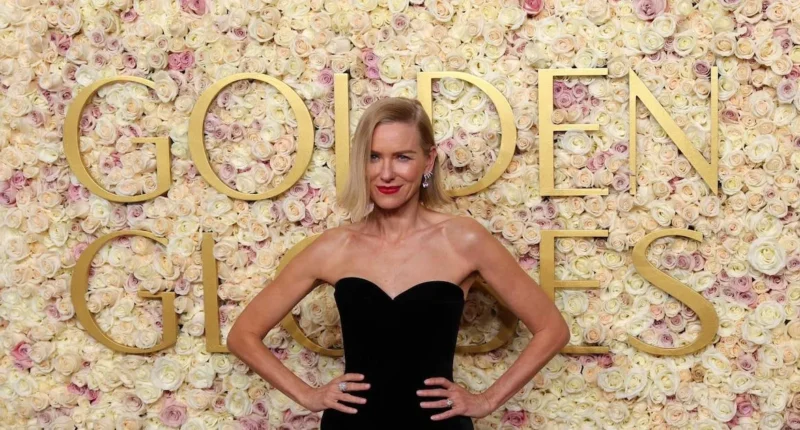In a world where youth and beauty often dictate professional success, particularly in the film industry, Naomi Watts has chosen to challenge the silence surrounding menopause. At the age of 36, the Oscar-nominated actress faced a diagnosis that, for her, seemed like a distant episode in her life. In an interview with the British newspaper The Times, she shared her personal experience regarding how symptoms of this stage, which she was completely unaware of, began to emerge, marking a turning point both personally and professionally. This narrative reflects the physical and emotional challenges she encountered, deciding to use her platform to bring visibility to a topic that continues to be considered taboo in the entertainment industry.
An unexpected revelation came when she first heard about menopause during a visit to her doctor, who informed her that she was nearing this transition. This occurred while she was trying to conceive, which surprised her greatly. “That’s for grandmothers,” she thought at that moment, filled with fear and disbelief, as she erroneously associated menopause with the end of fertility and a threat to her career in motherhood. Having started her acting career later than many of her peers, she had often been told that as she aged, she would lose leading roles. Suddenly, this meant a personal change and a potential shift in her trajectory as an actress.
During this time, she experienced night sweats but never paid them much attention. Doctors she consulted for a long time dismissed these as mere side effects of her lifestyle: stress, premenstrual syndrome, or even an allergic reaction to something she had eaten. However, during a medical consultation, the pieces of the puzzle began to fit together. Irregular menstrual cycles, hot flashes, and constant fatigue were, in fact, signs of perimenopause, the transitional phase that many women do not recognize until they experience it.
Watts noted that this topic is not discussed at all in Hollywood. Despite being surrounded by intelligent and open individuals, she had not had a candid conversation about this natural process. “Why did no one talk to me about this?” she questioned. The reason, according to Watts, is the stigma that surrounds aging in Hollywood, where it is often associated with a decline in attractiveness and relevance, almost suggesting that women “disappear” as they are seen as seductive grandmothers when they age.
Her reflection also reveals the shame she felt in confronting the changes in her body. At the time, she chose to hide her use of hormone patches, worried that revealing her age would make her appear less attractive. She even felt apprehensive about revealing this to actor Billy Crudup, with whom she starred in the series Gypsy, fearing that it would affect his perception of her. Ultimately, when she opened up to him, she found understanding and support, which surprised her as they shared a deep and authentic connection.
The importance of communication and normalization became clear to her; she learned that this should not be a death sentence for femininity or sexuality, but rather an opportunity to embrace a new form of sexuality. Although it brought with it a decrease in libido, she discovered that she could enjoy her sexuality in different ways. With age came immediate acceptance, and she understood that hormonal changes are completely normal and treatable.
The actress encourages others to speak openly about their experiences, as society has historically minimized and ignored the needs and desires of mature women. She considers education about this process to be crucial. In 2022, she founded Stripes Beauty, a company that offers products designed to meet the needs of women in midlife, including lubricants and moisturizers. By breaking the taboo, her book aims to provide a space for discussing menopause. She recognizes that the journey can be long and is aware that visibility on these topics can help women feel accompanied and understood. It is not just about treating symptoms, but about breaking the silence surrounding older women, allowing them to navigate this stage with dignity and without fear.









